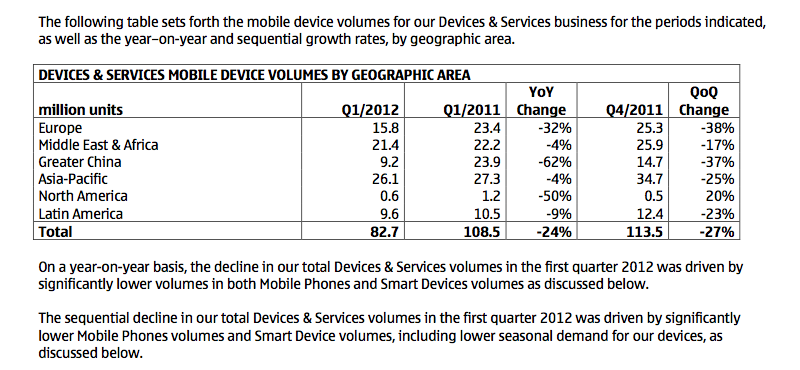Nokia reports $1.7 billion loss, "challenging" market for new Windows Phone 7 Lumia
Nokia'a chief executive Stephen Elop stated (PDF), "we have launched four Lumia devices ahead of schedule to encouraging awards and popular acclaim. The actual sales results have been mixed.
"We exceeded expectations in markets including the United States, but establishing momentum in certain markets including the UK has been more challenging," Elop stated.
Nokia has historically had virtually no presence in US smartphone sales, but has been strongly entrenched in the UK and the rest of Europe.
However, after announcing plans to drop its own Symbian platform and partner with Microsoft to develop a new line of Windows Phone 7 models, the company has found new resistance among carriers that once sold a large share of its smartphones.
Despite claims that Nokia's Lumia launch on AT&T this month would be the carrier's biggest launch ever, costing $150 million and purportedly overshadowing previous iPhone launches, Nokia only described its AT&T debut as "encouraging."
Nokia sold 20 percent more mobile devices in North America this quarter compared to the winter quarter, but is down 50 percent in the region compared to one year ago. Sales in all other regions were down versus both the previous and year ago quarter.
Nokia appears to have lost the premium market for smartphones to Apple and Samsung, while focusing its Lumia at the mainstream market. The company has also lost significant ground on the low end, where Symbian and simpler S40 phones once ruled.
In addition to the challenging market for Lumia's "mixed" sales, Microsoft has also indicated that existing Windows Phone 7 "Mango" devices can't be upgraded to the new software release codenamed "Apollo," creating additional negative buzz for the struggling platform that has struggled in vain to gain traction over the past year.
 Daniel Eran Dilger
Daniel Eran Dilger











 Andrew Orr
Andrew Orr
 Wesley Hilliard
Wesley Hilliard
 Amber Neely
Amber Neely

 William Gallagher
William Gallagher

 Malcolm Owen
Malcolm Owen








